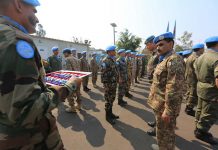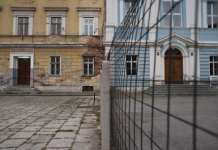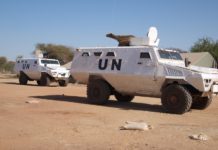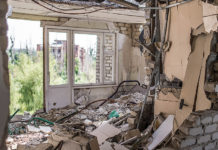The first ever World Humanitarian Summit (WHS) played out last month in the manner in which it came upon us: with moments of optimism and ambition for the future of humanitarian action mixed with confusion and doubt as to how tangible the Summit outcomes could really hope to be. Among the 9000 participants in Istanbul, there were some 55 Heads of State, though none of the Permanent 5 members of the UN Security Council, and Angela Merkel was the sole G7 leader present. While not unexpected, the scarcity of high level representation from the most important global leaders clearly handicapped the High Level Roundtables, in particular the ones on ‘Political Leadership to End and Prevent Conflict’ and ‘Upholding the Norms that Safeguard Humanity’ on international humanitarian law (IHL), where buy-in from states was self-evidently crucial to their success.
ACF’s journey to the summit
ACF sent a network delegation to the WHS with one principle message: to demand that political leaders and the broader international humanitarian community collectively reaffirm the right of all populations to access their basic needs and commit to more effectively enable principled humanitarian action in situations of armed conflict and crisis. As part of its Protect Aid Workers campaign(1), ACF took to the WHS its demand for a Special Rapporteur for the protection of aid workers, who could more successfully advocate for safe and consistent humanitarian access, including by enhancing the actual and perceived neutrality of impartial emergency relief.
The general theme of the eroding respect for IHL, and in particular the growing violence facing aid workers in insecure environments had been a prominent theme in the Secretary general’s One humanity: shared responsibility report for the WHS. This report was supposed to set the tone and scope of the WHS agenda, and, given the broader landscape of UN resolutions related to violence against aid workers including the recently adopted resolution 2286 (2016), co-sponsored by more than 80 Member States, ACF had initially hoped that the WHS programme would be an opportune forum to focus on these challenges and commit to concrete proposals that have a real chance of improving respect for principled humanitarian action.
However, it became clear several weeks before the Summit that the compelling problem of attacks on the humanitarian mission would not be accorded the attention it briefly enjoyed in the SG’s report. Indeed, the protection of humanitarian workers was conspicuously absent from the WHS programme. In response, ACF drafted a Call to action with the objective of giving this issue the visibility it deserved at the WHS and beyond. 11 NGOs(2) signed this Call.
In spite of the somewhat disheartening WHS agenda, ACF went to Istanbul with its campaign to protect aid workers, its Call to action, and its determination that protecting principled humanitarian action – including by addressing the rampant impunity for indiscriminate attacks that cut off access by vulnerable populations to their basic needs – is a critical foundation to an effective humanitarian response, and the elephant in the room that finally has to be acknowledged.
How did IHL and protecting humanitarian action fare at the summit?
ACF co-authored an ICVA brief for the Roundtable on IHL and made an oral statement at the Special Session on Humanitarian Principles, both aiming to highlight the limits of humanitarian action in the absence of a meaningful regard for the protection of humanitarian actors. ACF also participated in a joint press conference with Peter Maurer of the ICRC to promote the message that a new mechanism was needed to practically respond to the growing risks faced by aid workers that violated key principles of IHL. However, the Call for a Special Rapporteur was nowhere to be seen in the commitments and demands highlighted by the WHS press, nor in the official WHS meeting coverage, nor the final Chair’s Summary.
An IRIN post-mortem of the WHS counts progress in the area of IHL as one of the ‘losers’ of the WHS(3), mainly on account of the lack of diversity among the high level political players coming to the party. The ICRC tried to be cautiously optimistic, while admitting that one could not speak of “spectacular advances”, whereas for Jan Egeland, the test for success at the WHS was whether its outcomes would change anything for civilians being bombed in Syria’s Aleppo city – perhaps an unfair expectation of a summit with such a bewildering array of complex issues to grapple with.
A more sober observation came from Manuel Bessler, head of the Swiss government’s humanitarian aid unit, who said that while there was a clear consensus among participants of the unacceptable gap between agreed international obligations under IHL and the facts on the ground, the Roundtable mainly “preached to the converted”, with commitments coming largely from those who were already committed. He said: “we need commitments of those who are not, or not yet, or have to be convinced. On this front, we have to do more”.
While there was significant reporting in the WHS press about humanitarian actors, notably ACF and NRC, committing to invest in mandatory all-staff training on the humanitarian principles, there was deafening silence regarding the other side of the coin: the need for states to come up with a mechanism to ensure their own principles and obligations were monitored, which would in turn enable actors to provide a stronger, more principled and more consistent humanitarian response. One could not be blamed for concluding that there were certain elements in the humanitarian establishment that simply did not want to have this conversation, and quietly but persistently failed to give oxygen to any debate on the merits of a Special Rapporteur.
But as HERE-Geneva noted in its WHS report published ahead of the summit(4), “without greater political respect for international law and existing policy commitments, strengthening humanitarian action will remain of relatively little value… today’s conduct of hostilities flouts the obligations of IHL and IHRL with devastating consequences for civilians and for the delivery of aid”.
That article goes on to demonstrate Syria as the current “poster child for impunity, unchallenged by states with the power and obligation to do so”. It follows then, that while strengthening the accountability of states for their non-compliance with IHL is a matter for states themselves, it is also of significant concern to humanitarian workers, particularly in this paradoxical context of mutual agreement on the one hand that IHL is not sufficiently respected, but lack of consensus on the other as to measures that could go some way towards achieving better respect(5).
Indeed, the daily violation of established principles that provide for the protection of civilians and the preservation of humanitarian access makes abundantly clear the need for urgent consideration of a new mechanism for improving respect for IHL and humanitarian action, while remaining light, flexible and focussed. As ICRC’s Peter Maurer said, “you have to do more than just recommit to what you have already committed to 50 years ago”.
The Secretary General floated the idea of a ‘global watchdog’ in his report for the WHS – a mechanism to track and report on trends of violations of IHL and gaps in compliance. This and many other initiatives described in his report align directly with the substance of what ACF is advocating for. Now, with the protection of humanitarian activities in armed conflict and the right of vulnerable populations to an effective humanitarian response again scheduled to take the spotlight at the 27 June ECOSOC Humanitarian Segment, ACF continues to build a community of interest around this campaign and broaden its advocacy for a Special Rapporteur to an ever-growing number of new partners in the humanitarian community and concerned States. Watch this space.
(2) Act Alliance, Acted, Action contre la Faim, Amanuddin Foundation, Bangladesh NGOs Network for Radio and Communication, CARE International, Concern Worldwide US, ICVA, Handicap International, Relief International, Report the abuse, Secours Islamique France
(3) The World Humanitarian Summit : winners and loosers
(4) http://On the Right Track? Reasserting the Priorities of Humanitarian Action
(5) No deal to strengthen respect for Geneva Conventions
Alexandra Strang
Derniers articles parAlexandra Strang (voir tous)
- Les réflexions d’Action contre la Faim sur le Sommet Humanitaire Mondial – 7 juin 2016
- ACF reflections on the WHS – 7 juin 2016







